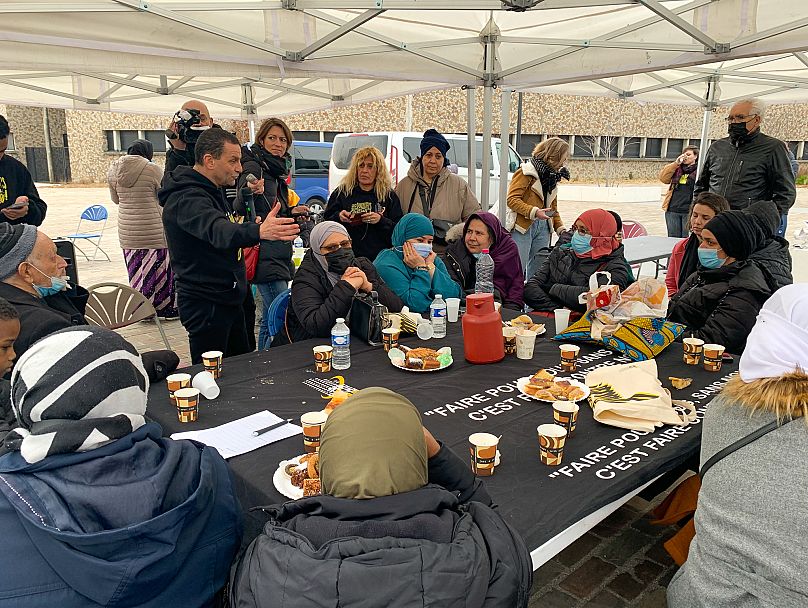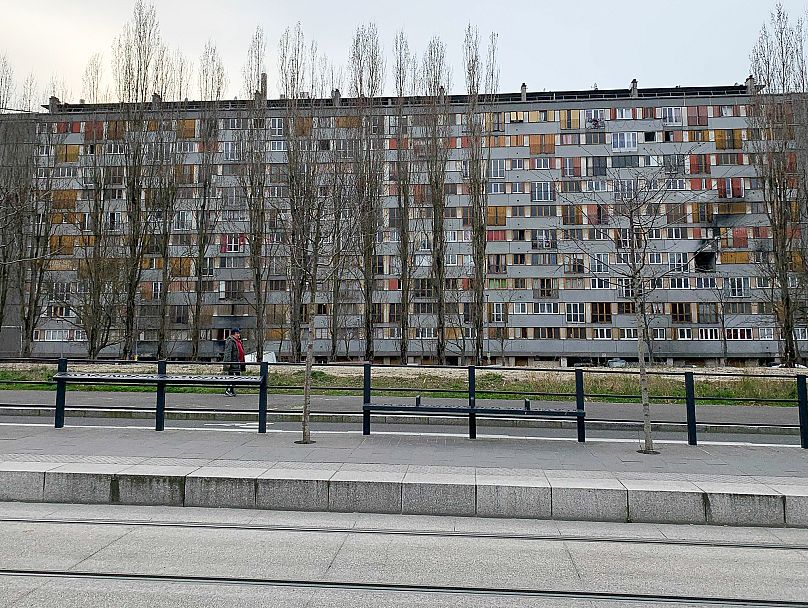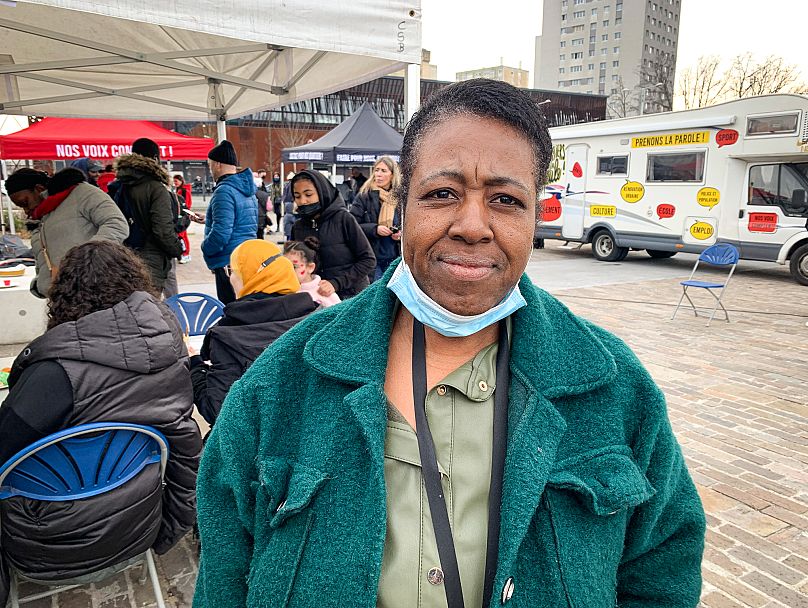Locals in Clichy-sous-Bois, a poor suburb of Paris, tell Euronews no one is listening to them.
In the run-up to France's presidential election on Sunday, Euronews is publishing a story at 16:00 each day to help you better understand the race for the Elysee.
 ADVERTISEMENT
ADVERTISEMENT
 ADVERTISEMENT
ADVERTISEMENT
A mere hour outside of the French capital, residents gather at a sprawling new tram stop to unload their political concerns.
The suburb of Clichy-sous-Bois is the last stop on a road trip around some of the poorest neighbourhoods in France for a non-profit organisation hoping to give a voice to those who say the government has forgotten them.
“The presidential candidates don't talk about people's real problems so we did a tour of France and we discuss the problems they face,” said one of the volunteers, 70-year-old Mustapha Echabouni, who has been working with the organisation Pas Sans Nous (Not Without Us) for four years.
Many residents and volunteers here agreed that the presidential candidates only speak about cities like Clichy, where some 37% of the population are immigrants, with contempt.
Immigration has become a main talking point in the upcoming April election, with two major candidates calling for it to be reduced to zero.
“On television, they talk about immigration, immigration, immigration. It’s like business capital,” said Echabouni, who came to France at the age of 17 from Morocco.
“The problems for these people are employment, housing, health, and education,” he said.
At the event in the centre of town, residents want politicians to come and listen to what they have to say.
“I'm fed up that people from the banlieue [suburbs] are treated like less, that we’re looked down on but people don't know what we feel, that we live,” said Mohamd Kourdi, who was born in the next city over, Montfermeil.
Kourdi, 62, wants politicians and ministers to come and live in his neighbourhood for a few days to see what it’s like.
“Politicians come to deposit their leaflets at the market and then they leave whereas they should come really see what’s happening. There are not enough doctors, not enough eye specialists. They’ve all gone,” Kourdi says, adding that it can take three to six months to get an eye appointment here.
Like many residents, he’s sick of hearing about security and immigration as the big topics of the election.
“They shouldn’t say that in this area there’s no security, that’s not ok. No one is listening,” he said.
Those who know of Clichy-sous-Bois likely remember it as the backdrop of the 2019 Oscar-nominated film entitled Les Misérables which depicted a violent relationship between the city’s youth and police.
The Paris suburb was also the starting point for the 2005 riots that erupted after two teenagers died while avoiding a police check.
Mohamed Mechmache who founded the organisation Pas Sans Nous said it was important to hold the last stage of their nationwide tour in this area, which is where he grew up.
During the COVID-19 crisis, he says the people here were the backbone of France’s economy, and he wants to make sure that their voices are heard during the election.
“They needed this space to be able to express themselves and talk about their concerns,” Mechmache said.
“The themes that are of concern to them, it's their purchasing power, it's education, it's work, it's health, it's is unemployment,” Mechmache said, in addition to housing, which came up in most conversations with residents.
It’s not surprising – despite the plentiful new construction projects dotted along the brand new tram line, massive dilapidated apartment complexes with black windows and tagged corners line the streets in the centre of town.
The region has committed to demolishing more than 1,200 housing units to construct new buildings but residents say housing remains their top concern.
A 41-year-old mother of six says she lives with her husband and children in a three-bedroom apartment and has struggled to find adequate housing for 20 years.
“My children have trouble sleeping. They have a hard time doing their homework. We are tired. Three rooms is small for eight people,” said Ms Camara, who did not want to give her first name.
The city’s mayor swings by the association’s tour stop to talk with residents, who welcome him with open arms.
Olivier Klein, a former member of the socialist party, recently sponsored incumbent President Emmanuel Macron’s campaign.
“In working-class neighbourhoods in France, they need everything, like everywhere else. I think the major challenge is to have nice housing, new or rehabilitated, transportation, great schools. What they need is to be normal,” Klein said.
“The future of these neighbourhoods is to become completely normal so we stop blaming them for their problems, but thanking them for all the solutions they bring to this country.”
Many of the people gathered at the event are immigrants who have been in France for more than a decade and who have raised their children here.
Women from the area serve North African delicacies as French and Arab music blasts from the speakers outside the police station, with the political discussion quickly resembling a neighbourhood street party.
But improving people’s lives remains centre-stage at a debate among some 20 women sitting with children around a table.
Samia has lived in Clichy-sous-Bois for 18 years and says that her children have a hard time learning in part because the teachers sent to the area have little experience.
She says France’s politicians are lost but that she won’t be able to vote in the upcoming election as she's an immigrant from Algeria.
Another woman who speaks at the debate, Yamina Gourari, is disappointed in what she sees as little change to her living circumstances but she still plans on voting in the upcoming election.
“Sometimes I tell myself that I won’t vote, but then I say it’s my duty to vote, so I must,” she said.
Then there's 84-year-old Charef Abderrahmane, who stayed for the entire three-hour event. He says the city’s youth are its future. He hopes that they can get the professional training they need to live normal lives.
“There are high and low moments, they are not always bright but when we are listened to, it can help us to give back,” he said.














